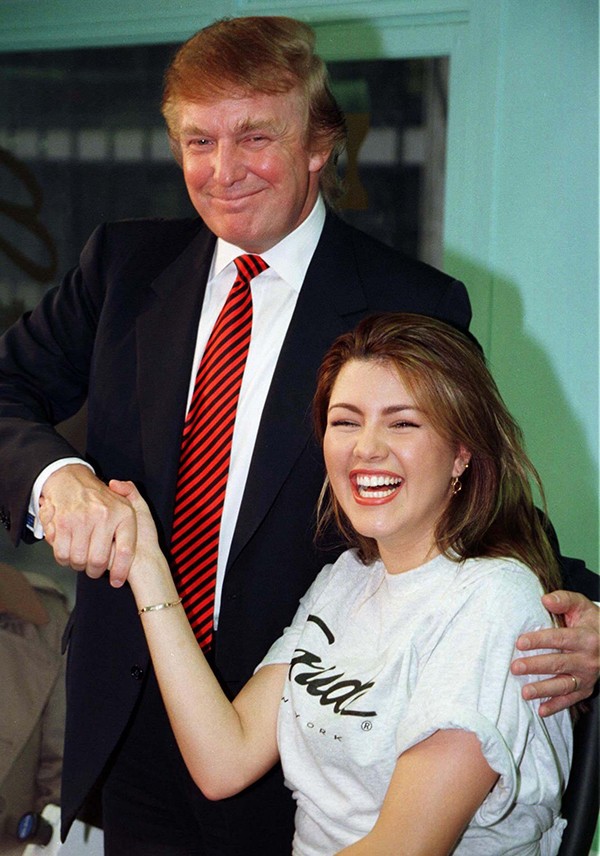 Reuters.com
Reuters.com
Donald Trump and Alicia Machado in 1997
In 1995, a young Hispanic woman, Alicia Machado, was crowned Miss Venezuela in a nation known for oil, income inequality, and beauty pageants. In Las Vegas, a year later, Machado won the Miss Universe contest. This was about the same time the pageant came under direct management and ownership of Donald Trump.
By now, Trump’s hostility toward Hispanics is well known. He began his political campaign last year by referring to Mexicans as “criminals and rapists.” That opening salvo earned him the media attention and political oxygen he needed to move forward. Now, here we are, about a month from the 2016 presidential election, and Trump, in some polls, is virtually tied for the presidency against Hillary Clinton, a woman who served as senator from New York and secretary of state in the Obama administration. How could this be?
Trump’s two hostile obsessions — Hispanics and women — track together nicely in the Machado story. He referred to Machado as “an eating machine” (she gained some weight after being named Miss Universe — fame can be stressful). He called her “Miss Piggy,” and purportedly referred to her as “Miss Housekeeping.”
A beauty, yes, but a Hispanic beauty and thus, in the welterweight mind of Donald Trump, limited exclusively to the cleaning crew. Recently we learned that Trump would fire women at his California golf club if they didn’t meet his exacting, frivolous (and illegal) beauty standards: They had to be thin and attractive — to Trump.
This man is now in a position where he could be elected president of the United States. Our media elites have let this carnival continue for too long. Les Moonves, chairman of CBS and one of the most powerful media tycoons in the nation (he earned $57 million last year), succinctly summed up the circus in February: “It may not be good for America,” he said, referring to Trump’s candidacy, “but it’s damn good for CBS.”
Have we become so callous, so greedy, that only profit matters?
For Trump, we know two of his primary concerns are weight gain in women and personal profit. But we really don’t know too much about Trump’s profit margin, or any taxes he paid to state and federal government, because he refuses to release his income tax returns, as all presidential candidates have done for the past 40 years. But this standard doesn’t apply to Trump, who seems to think that taxes are something that should be paid by everyone else. He admitted as much during the first presidential debate when he told the world that he was “smart” for paying little (or nothing) in the way of federal income tax.
You know who does pay taxes in the U.S.? The very same “criminals” Trump vilified when he opened his campaign. According to a recent report by the Institute of Taxation and Economic Policy, undocumented workers pay $11.64 billion each year to state and local coffers. Here in Tennessee, they pay $105 million in state and local taxes. Federally, unauthorized workers pay about $13 billion per year into the Social Security Trust Fund, and take out perhaps $1 billion in benefits. It is no wonder that Trump’s campaign has aroused so many misgivings.
A growing number of political observers, including many prominent members of Trump’s own Republican Party, have charged that he is not minimally fit to serve as president of the United States. Ironically, though the Constitution stands in the way of foreign-born Alicia Machado, the spunky Miss Venezuela of 1995 would make a better president. She is at least as experienced as Trump, and vastly more likable. Besides, she pays her taxes.
Bryce Ashby is a Memphis-based attorney and board chair at Latino Memphis; Michael J. LaRosa is an associate professor of history at Rhodes College.